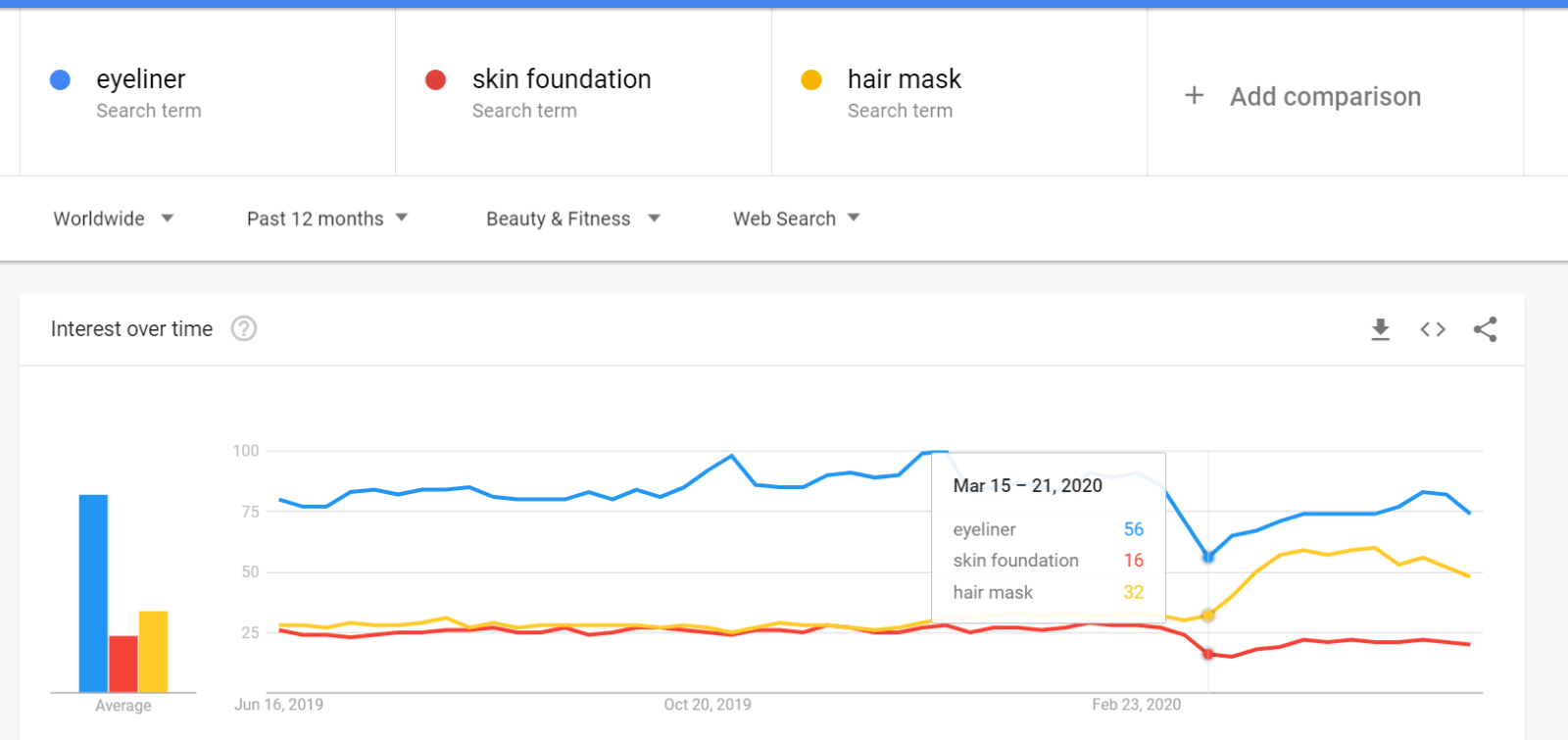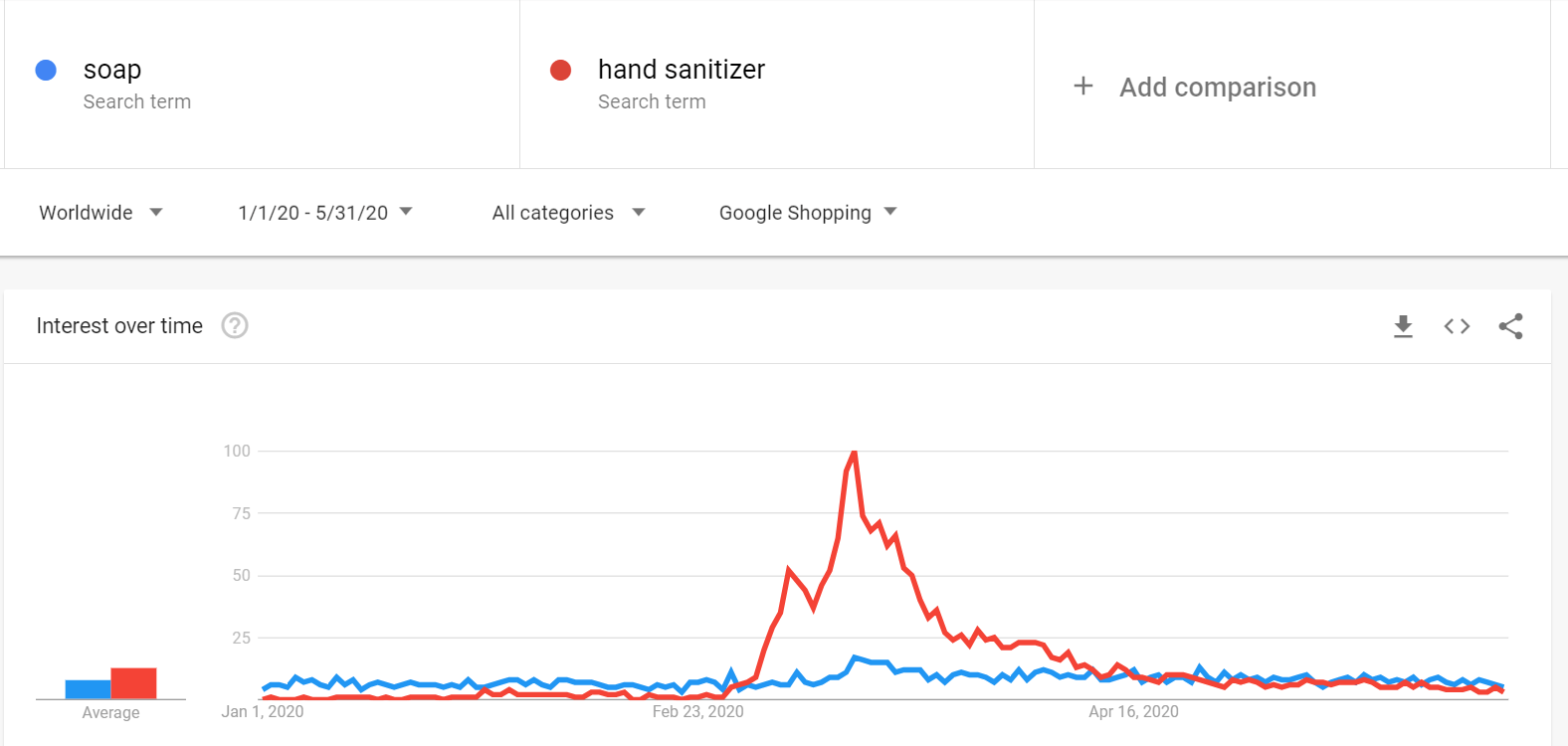Not a homogenous impact within the cosmetics industry:
The coronavirus pandemic has forced nearly one-third of the world’s population into lockdown. During this time, consumer demand for cosmetics has decreased in general. However, if you take a closer look within the segments some are booming! While decorative cosmetics experienced a dip in demand, essential oils, hygiene and skin care segments are thriving as consumers try to improve their immunity. But what are the impacts of the COVID-19 on the natural ingredients for cosmetics market?
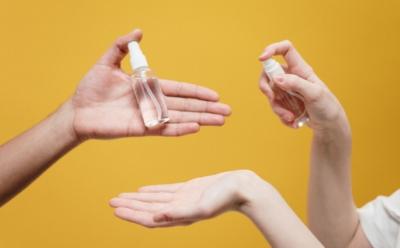
In Europe, where the COVID 19 outbreak has made most of the victims in March and April, some major players of the cosmetics industry have decided to produce hand sanitisers for free. Many brands have quickly developed new soap lines or hand sanitisers, and some start-ups came up with amazing inventive ideas. For example the brand Five Dot Botanics tried to produce free hand sanitisers but couldn’t get the raw ingredients needed because of the high demand. The solution came from outside of the cosmetics industry, finding the alcohol needed to produce the products from a local artisan distillery.
Disrupted supply chains for natural ingredients for cosmetics
A major issue that affect all supply chains, including natural ingredients, is that during the lockdown countries closed their borders or raised trade barriers. As a result, producers and exporters were facing high competition to export their goods. Air freight has been significantly reduced for commercial use while many goods are usually shipped via this means of transport. Therefore, producers face difficulties to honour their orders and business slowed down.
Immediate challenges related to traceability for quality and legal requirements caused by the COVID crisis
The effects of inter-country lockdowns on production and trade of natural ingredients remains uncertain. They vary from country to country and from product to product. One impact of the COVID-19 on the natural ingredients for cosmetics market is the disruption of supply chains. Most buyers of natural ingredients for cosmetics will only do business with sustainable suppliers. Buyers want to ensure that the ingredients they buy are traceable and comply with legal requirements. However, travel bans prevent them to visit their suppliers. To overcome this, importers are replacing face-to-face contact with online meetings. Doing business online may become more normal within the sector. This could mean an increase in the usage of technologies, especially in supply chain management tools. The same goes for certifications bodies that are forced to conduct remote audits and might have to look into technological alternatives to on-site audits.
Make up and colour cosmetic are suffering while hygiene products are reaching new heights
Makeup is one of the segments that is the most affected by the pandemic. During the lockdown, people’s habits changed with using less decorative cosmetics. The general use of masks has also a strong impact on the makeup demand.
By contrast, demand for hygiene, hair and cleansing products are booming, such as hand sanitiser, hair masks or hand lotions. Products that are traditionally known for their antibacterial or moisturising properties can benefit a lot of this actual world situation.
Keywords volume searches in the world for make-up items seems to slow down during the first week of the lockdown in Europe as use of self-care products such as hair masks spiked.
Keywords volume searches in the world for soap and hand sanitisers in particular were higher at the beginning of the pandemic.
ProFound expert in natural ingredients for cosmetics Jolanda van Hal witnessed two big new trends emerging since the pandemic has started:
1. Growing demand for natural products to improve health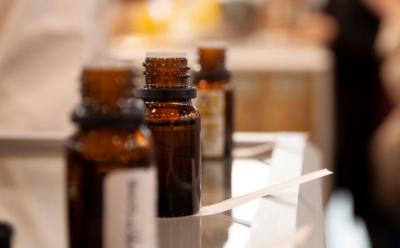
Beauty products that are considered preventative and safe are seeing a rise in demand. Natural beauty products are benefitting from this boost. The panic and fear provoked by the pandemic influences consumers to find new ways to improve their health.
Organic food and organic products in general are benefitting from the pandemic crisis. Aromatherapy products and essential oils with claims of antibacterial and antiviral effects have also seen a spike in demand as consumers aim to improve their immunity. So much so, that the industry has warned that there are no sufficient data to prove the efficacy of such products against the pandemic.
2. A more digital cosmetic industry
The pandemic of COVID 19 will probably have a strong acceleration of digital transformation within the cosmetic industry. Most industry events, such as in-cosmetics and Cosmoprof are cancelled or postponed. Vitafoods, the trade fair for the nutraceutical industry, offers a new newest digital solution called Vitafoods connect. In May, the fair hosted Vitafoods Digital Week with webinars and podcasts.
Trade fairs in many sectors, included the cosmetic industry, have thus turned to online tools and platforms. You might yourself have watched some free webinars that started to pop up (and not only in the cosmetic industry!). Start-ups and brands are trying to stay in touch with customers via social media or online innovations. Online tools, such as beauty apps to discover new products, online consultation for beauty tips are some examples of innovations that are popping up.
On the consumer-end, e-commerce is becoming a matter of survival for many cosmetics brands. However, not all brands took this route. Lush, for example, closed all their physical stores in April as well as all online orders in Europe. The company chose to close all manufacturing and fulfilment sites to protect its staff. For producers or exporters of natural ingredients, it’s becoming vital to develop an online presence, as travelling is highly uncertain in the coming months.
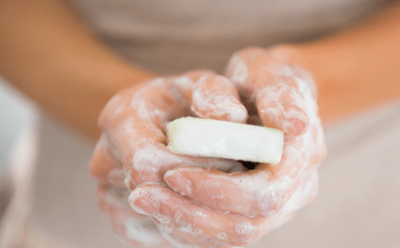 An economic crisis that will shrink demand?
An economic crisis that will shrink demand?
The cosmetic industry is a very competitive industry, with companies always looking for innovative products to stand out from their competition. It is too soon to tell what the natural ingredients cosmetic sector will look like after the COVID-19 pandemic is over. The economic crisis that is occurring in many countries will also have an impact on the cosmetic industry. Many consumers will have to make alternate choices as their incomes shrink. While many personal care products are seen as essential by consumers, others are not. Especially makeup, fragrance and hair styling categories are facing difficulties. But not all consumer trends from before COVID 19 will disappear even if new trends and ways of working might emerge out of it.
Are you a producer/exporter of natural ingredients for cosmetics?
ProFound can help you to translate these new market developments into opportunities and profile yourself online to attract the buyers.
Get in touch with us if you would like to know how we can help you!

